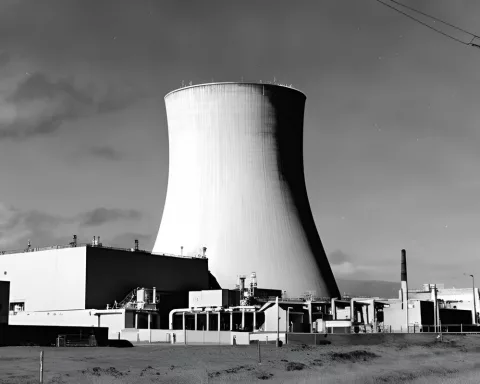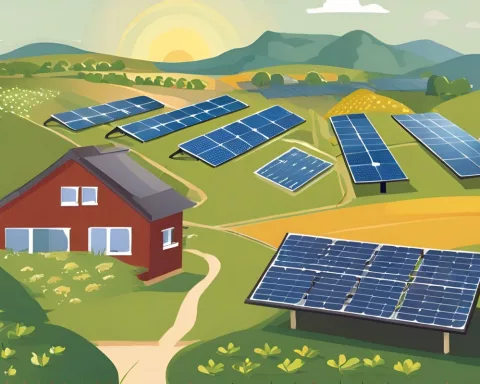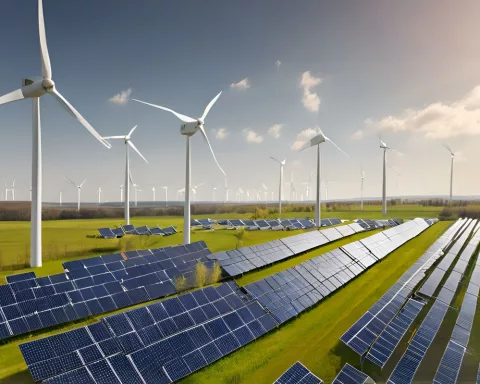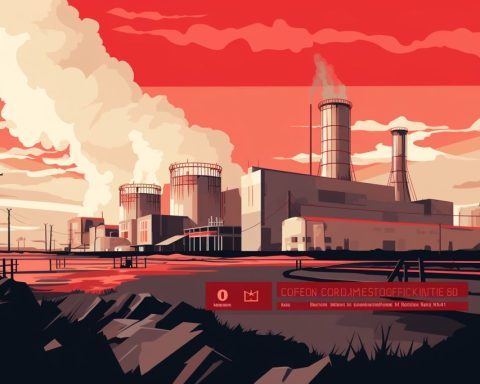Cape Town is faced with the decision of whether to extend the Koeberg nuclear power plant’s operation for another 20 years. The city is seeking more time to weigh the potential impact on urban planning and preparedness for nuclear mishaps. Koeberg is the only nuclear power station in Africa, and concerns range from its emergency response plan to legal ramifications. The decision will have significant national and global implications, and the debate on Koeberg’s future extends beyond a city-centric issue.
Will Cape Town extend Koeberg’s nuclear power plant operation for another two decades? The decision is pending while the city seeks more time from the National Nuclear Regulator to weigh the potential impact on urban space planning and preparedness for nuclear mishaps. The only nuclear power station in Africa, Koeberg’s future has become a contentious issue, with concerns ranging from its emergency response plan to legal ramifications. As Cape Town deliberates on Koeberg’s future, the decision will have significant national and global implications.
Koeberg: The Power Pioneer
Cape Town, a bustling metropolis, finds itself grappling with the dilemma of whether to extend the Koeberg nuclear power plant’s operation by another two decades. The city is seeking more time from the National Nuclear Regulator (NNR) to reach a decision, as uncertainty surrounding urban space planning and preparedness for potential nuclear mishaps loom large.
For the past 40 years, Koeberg, jointly managed by the City, NNR, and Eskom, the state-owned power utility, has been a symbol of nuclear energy. Its unique position as the only nuclear power station in Africa, and the Southern Hemisphere’s largest turbine generators, make it a significant entity. The power plant, ensconced in a massive 3,000-hectare nature reserve owned by Eskom, is staring at the expiry of its current 40-year license in July.
The Ongoing Debate on Koeberg’s Future
The question of Koeberg’s future became a heated topic following Eskom’s plea for extended operation rights. The public hearings on this proposal wrapped up on June 8, with citizens and several institutions expressing their apprehensions.
A primary concern is the effect on Cape Town’s future expansion, as mentioned by the city’s spokesperson, Priya Reddy. With significant landholdings by the City and private investors, Koeberg’s continued operation could stifle the emergence of new neighborhoods since these lands would be essentially ‘frozen from development.’
Public fears extend to Koeberg’s emergency response plan. In the event of a nuclear mishap, heavy traffic could create substantial impediments. The City, however, defended its emergency strategy, asserting its adherence to top international safety standards.
International concern and Legal Implications
The International Atomic Energy Agency (IAEA) also weighed in on the debate, pointing out several safety issues at Koeberg. Its 2022 report, released due to activist pressure, revealed issues such as cracks in the buildings housing pressurized water reactors and a faulty monitoring system. Responding to these findings, Eskom claimed to have addressed and resolved all 14 concerns raised by the IAEA.
Adding another layer of complexity to the decision are potential legal ramifications. The Southern African Faith Communities Environment Institute (SAFCEI) has cautioned that there may be legal pushback if Koeberg is allowed to continue operations for another two decades. Francesca de Gasparis, SAFCEI’s executive director, expressed apprehensions over Koeberg’s safety issues, suggesting that the NNR’s failure in decision-making could lead to further legal entanglements.
According to Reuters, the NNR confirmed Cape Town’s plea for more time to generate a response before the final judgment on Koeberg’s future, which is likely by the end of July or August. This postponement reflects the city’s careful approach and the complexity of the situation, which requires balanced consideration of power requirements, citizen safety, and future urban growth.
Implications Beyond Cape Town
The debate on Koeberg’s future extends beyond a city-centric issue; it is of national significance, encompassing urban development, nuclear safety, and disaster management. As Cape Town’s authorities wrestle with these multifaceted challenges, the outcome will certainly have far-reaching implications. The decision will not only affect the city and its inhabitants but will also influence the wider dialogue on nuclear energy in both Africa and the global context.
1. What is the current status of Koeberg nuclear power plant’s operation?
The decision to extend Koeberg’s nuclear power plant operation for another 20 years is pending while Cape Town seeks more time from the National Nuclear Regulator to weigh the potential impact on urban space planning and preparedness for nuclear mishaps.
2. What are the concerns regarding Koeberg’s future?
The concerns range from its emergency response plan to legal ramifications, including potential legal pushback if Koeberg is allowed to continue operations for another two decades.
3. Who manages Koeberg nuclear power plant?
Koeberg is jointly managed by the City of Cape Town, National Nuclear Regulator, and Eskom, the state-owned power utility.
4. What is the significance of Koeberg nuclear power plant?
Koeberg is the only nuclear power station in Africa, and the Southern Hemisphere’s largest turbine generators, making it a significant entity.
5. Beyond Cape Town, what are the implications of the decision on Koeberg’s future?
The decision will have significant national and global implications, encompassing urban development, nuclear safety, and disaster management, and will influence the wider dialogue on nuclear energy in both Africa and the global context.
6. When is the expected final judgment on Koeberg’s future?
The final judgment on Koeberg’s future is likely by the end of July or August, following Cape Town’s plea for more time to generate a response before the deadline.












